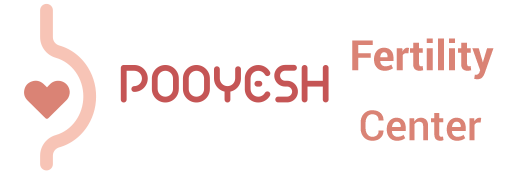Egg Freezing
Pooyesh Fertility Clinic
Egg Freezing
Egg freezing, or oocyte cryopreservation, is a fertility preservation method in which a woman’s eggs are retrieved, frozen, and stored for future use. This technique allows women to delay pregnancy while maintaining the possibility of conceiving at an older age.
Why Women Choose Egg Freezing
There are several medical, social, and personal reasons for considering egg freezing:
- Age-related fertility decline: The number and quality of eggs decrease with age, especially after 35.
- Medical reasons: Cancer treatments (chemotherapy or radiotherapy), certain surgeries, or conditions such as endometriosis that may affect fertility.
- Social or personal reasons: Delaying childbearing due to career, education, or the absence of a suitable partner.
Egg Freezing Process
The steps typically include:
- 1 Consultation and assessment: Medical consultation, ultrasound examination, and fertility counseling with a reproductive specialist.
- 2 Ovarian stimulation: Hormonal medications are used to stimulate the ovaries to produce multiple eggs in one cycle.
- 3 Egg retrieval: Eggs are collected through a minor outpatient procedure under light anesthesia, guided by transvaginal ultrasound (or abdominal ultrasound for virgin patients).
- 4 Freezing and storage: Collected eggs are rapidly frozen using vitrification and stored in liquid nitrogen at –196°C.
Advantages and Disadvantages
Advantages:
- Offers women at risk of losing their fertility the possibility of having children in the future.
- Allows women to delay pregnancy without compromising future chances of conceiving.
Disadvantages:
- Relatively high cost of the procedure.
- Lower survival rate of eggs after thawing compared to fresh eggs.
Success Rates and Considerations
- Age: Eggs frozen before the age of 35 generally have a higher success rate.
- Pregnancy rates: Success depends on the woman’s age at the time of freezing, the clinic’s expertise, and the number of eggs stored (typically 10–20 eggs are recommended).
- Thawing and IVF: When ready to use, the eggs are thawed, fertilized with sperm using intracytoplasmic sperm injection (ICSI), and transferred to the uterus as embryos.
Risks and Limitations
- Ovarian Hyperstimulation Syndrome (OHSS): A rare complication caused by the medications used to stimulate egg production.
- No guarantee of pregnancy: Outcomes depend on egg quality and the success of IVF treatment.
- Cost: Both the egg freezing procedure and annual storage fees can be expensive.
